Incredible Black Seed Oil Mental Benefits

Black seed oil, extracted from the seeds of the Nigella sativa plant, has been a staple in traditional medicine for thousands of years. Known for its powerful therapeutic properties, this oil has gained global recognition, especially for its benefits to mental health. So, this article explores the numerous mental benefits of black seed oil… Backed by scientific evidence and academic research. From enhancing cognitive function… To alleviating anxiety and depression… Black seed oil has shown promising effects on mental well-being, particularly for athletes. Working professionals. And those dealing with mental fatigue. So, let’s get into another NA Supplements special… Here are some ‘Incredible Black Seed Oil Mental Benefits’!
Defining Black Seed Oil?

What is Black Seed Oil?
So, black seed oil is extracted from the seeds of the Nigella sativa plant. Which is native to regions like the Middle East, Eastern Europe, parts of Asia & some areas in Africa. Such as Ethiopia. Historically, black seed oil has been a part of traditional medicine systems for over 2,000 years. In fact, black seed oil is even known as “the remedy for everything but death,” due to its extensive range of uses.
Amazingly, black seed oil contains thymoquinone. An active compound that is believed to be responsible for many of its health benefits. Particularly its anti-inflammatory… Antioxidant… And neuroprotective properties. Furthermore, modern research has started to validate the long-standing belief in black seed oil’s healing potential… Especially in the area of mental health. Which is our area of focus in this article.
#1. Black Seed Oil Mental Benefits: Alleviating Anxiety

Understanding Anxiety and Its Impact
Unfortunately, anxiety is a common mental health issue that affects millions worldwide. In the United States for example… As of 2023, approximately 19.1% of adults in the U.S. experience an anxiety disorder annually, according to the National Institute of Mental Health (NIMH). Whilst, in Italy, approximately 11% of individuals report experiencing anxiety disorders. According to data from Istituto Nazionale di Statistica (ISTAT). Additionally, the purported covid pandemic has intensified feelings of isolation and uncertainty. Further contributing to rising anxiety levels in Italy. Likewise, in countries like Germany and the UK, anxiety is also a prevalent concern. With millions seeking treatment through therapy. Medication. And natural remedies.
Black Seed Oil’s Role in Reducing Anxiety
Black seed oil has shown promise in alleviating symptoms of anxiety. Moreover, a recent academic study demonstrated that the active compound thymoquinone is linked to a reduction in anxiety-like behaviour in animal studies. But simply, the study shows that thymoquinone… A key component of black seed oil (Nigella sativa)… Has anti-anxiety effects in mice. The researchers found that thymoquinone helps increase levels of GABA (gamma-aminobutyric acid). A neurotransmitter that has a calming effect on the brain. Especially in stressed mice. Furthermore, it also reduces nitric oxide (NO) levels. Which may contribute to its calming effects. But at even higher doses, thymoquinone worked better. Thus, showing its potential to reduce anxiety both under normal and stressed conditions. The study suggests that thymoquinone’s anti-anxiety effects involve the interaction of GABA and nitric oxide pathways in the brain.

Furthermore, in a study conducted in Pakistan (Perveen et al., 2009) N. sativa oil was used to explore its effect on anxiety. So, after four weeks of daily administration… The rats showed increased activity in open field tests. And reduced anxiety in the elevated plus maze test. Both of which are common methods for measuring anxiety in animals. The researchers also measured brain chemicals. Finding that Nigella sativa oil increased serotonin (5-HT). Which is a neurotransmitter linked to mood regulation. And tryptophan. A compound that the body uses to make serotonin. However, the oil also decreased 5-HIAA, a byproduct of serotonin breakdown, suggesting improved serotonin function. So, these findings suggest that Nigella sativa oil (aka. Black Seed Oil) is effective in reducing anxiety. Likely by boosting serotonin levels in the brain.

Mechanisms Behind Anxiety Reduction
1. Boosting Serotonin Levels:
- Mechanism: So, as the aforementioned research has demonstrated… Black seed oil, through its active compounds like thymoquinone… Promotes the synthesis of serotonin from its precursor, tryptophan (an amino acid). So, by increasing tryptophan availability… More serotonin can be produced. Additionally, black seed oil may inhibit the breakdown of serotonin, helping it stay active in the brain for longer, further enhancing its calming effects.
- Impact on Anxiety: Since serotonin is often referred to as the “feel-good” neurotransmitter… Higher levels generally contribute to a better mood. And reduced anxiety. This mechanism is similar to how selective serotonin reuptake inhibitors (SSRIs), a class of medications used to treat anxiety and depression, work by increasing serotonin availability in the brain.
2. Interaction with GABAergic Pathways:
Firstly, GABA (gamma-aminobutyric acid) is the primary inhibitory neurotransmitter in the brain. Meaning it helps to counterbalance the excitatory signals that can lead to anxiety and stress. So, when GABA is active, it produces a calming effect. Reducing nervous system activity. And promoting relaxation.
- Mechanism: Black seed oil… Specifically it’s active ingredient, thymoquinone, has been shown to enhance GABA activity in the brain. This may occur by increasing the levels of GABA or by making GABA receptors more sensitive. So, when GABA binds to its receptors, it causes an influx of chloride ions into brain cells. Thus, making them less likely to fire and transmit anxiety-inducing signals.
- Impact on Anxiety: So, by boosting GABA activity… Black seed oil helps calm the brain. Therefore, leading to reduced feelings of anxiety and stress. This is why GABA is often called the brain’s “natural tranquilizer.”
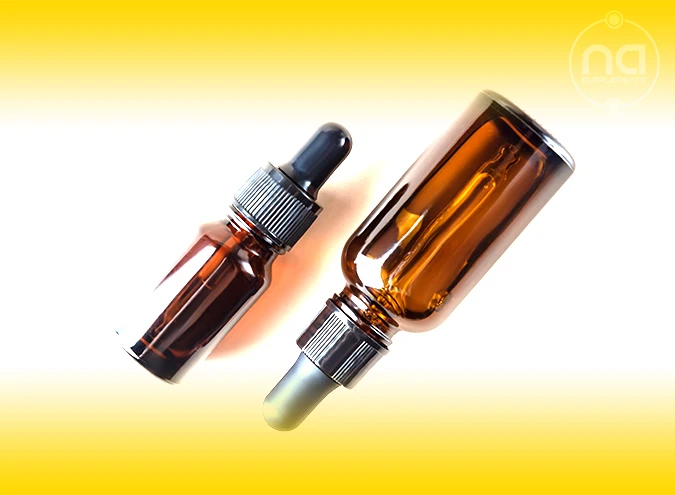
Dosage for Anxiety Relief: According to clinical studies, 1 or 2 teaspoons of black seed oil per day may help manage anxiety symptoms. However, it is always advisable to consult with a healthcare provider before starting supplementation. Especially, if you have specific health issues. And/or take other medications.
So, in terms of our exploration into black seed oil mental benefits… Black seed oil’s anti-anxiety properties are well documented. And included by academics in black seed oil arsenal of mental health benefits. But let’s not stop here! What about depression for example… Is black seed oil an effective antidepressant?
#2. Black Seed Oil Mental Benefits: A Natural Antidepressant?
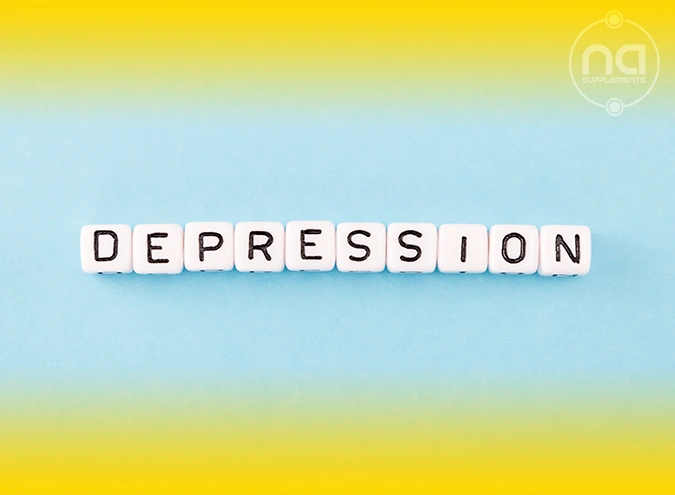
The Rising Prevalence of Depression
Firstly, and according to psychiatry.org… ‘Depression (major depressive disorder) is a common and serious mental disorder that negatively affects how you feel. Think. Act. And perceive the world.’ Symptoms of depression can vary from mild to severe and can appear differently in each person. Whilst generally persistent in nature… These symptoms can include:
- Losing interest or pleasure in activities you once enjoyed.
- A significant change in appetite.
- Change in body weight (notable loss or gain unrelated to dieting).
- Sleeping too little or too much.
- Difficulty thinking or concentrating, forgetfulness, and/or difficulty making minor decisions.
- Feeling sad, irritable, empty and/or hopeless.
- Decreased energy or increased tiredness or fatigue.
- Thoughts of death, suicidal ideation, or suicide attempts.
Note: Anxiety often involves physical symptoms like rapid heartbeat or restlessness. Whereas depression is more focused on emotional numbness and low energy.
Depression is a global issue, affecting over 300 million people worldwide, according to the World Health Organization (WHO, 2023). In countries such as the USA, Canada, and the Netherlands, depression has been identified as a major cause of disability, leading to the increased use of antidepressants and therapy.

Some Depression Statistics and Trends by Country:
USA
- Prevalence: So, approximately 8.4% of adults experienced depression in 2020. With recent estimates suggesting a rise to about 21% during the purported COVID-19 pandemic.
- Trend Commentary: The pandemic significantly exacerbated mental health issues. Thus, leading to increased rates of depression. Particularly among younger populations.
- Source: National Institute of Mental Health (NIMH).
UK
- Prevalence: As of 2021… Around 19% of adults reported experiencing some form of depression. This figure rose to about 27% in early 2021.
- Trend Commentary: There has been a notable increase in reported depression rates since the onset of COVID-19. Especially among young adults and women.
- Source: Office for National Statistics (ONS).
Canada
- Prevalence: About 23% of Canadians reported symptoms consistent with depression as of late 2020.
- Trend Commentary: The COVID-19 crisis has had a profound impact on mental health across Canada. Particularly affecting marginalized communities.
- Source: Statistics Canada.
France
- Prevalence: Approximately 17% of adults reported experiencing depressive symptoms in early 2021.
- Trend Commentary: The Covid crisis has intensified existing mental health issues. With younger populations particularly affected.
- Source: Santé Publique France
Germany
- Prevalence: In 2021, approximately 10.9% of the population reported experiencing depressive symptoms.
- Trend Commentary: Covid has led to increased mental health challenges. With a significant rise in those seeking help for depression-related issues.
- Source: Robert Koch Institute (RKI)

Black Seed Oil’s Potential as an Antidepressant
Black seed oil has demonstrated antidepressant-like effects in animal models, suggesting it may offer a natural alternative to pharmaceutical treatments. A 2016 (Elkhayat et al.,) study published in Pharmocognsy Magazine indicated that black seed oil helped reduce symptoms of depression in rodents. In fact, this study explored the antidepressant effects of Nigella sativa (black seed) oil by testing its polar extract (bioactive, water-soluble compounds) on mice. So, the extract showed significant antidepressant-like effects in two common tests: the Tail Suspension Test (TST) and the Forced Swim Test (FST), reducing the time mice spent immobile (a sign of depression).
Furthermore, the study identified specific compounds in the extract… Notably quercetin and tauroside… Which seemed to contribute to these effects. Thus, the results suggest that certain components of Nigella sativa oil could have antidepressant potential… Similar to the medication sertraline… But, without affecting other behaviours like movement or activity. The study attributed this to its ability to balance serotonin and dopamine levels, two neurotransmitters critical to mood regulation.
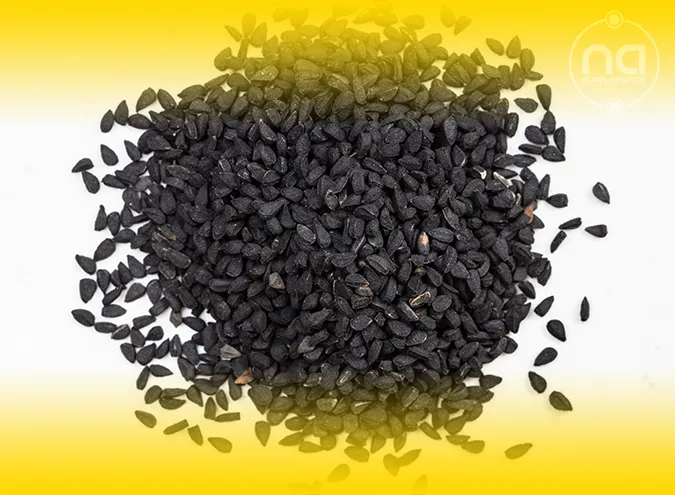
Academic Research
In a very recent human study conducted in the middle east (Rafiee, 2022 et al.,), participants taking black seed oil reported significant improvements in depressive symptoms. In fact, this clinical trial tested the effects of Nigella sativa (black seed) oil on patients with depression. With 52 male patients… One group received 1000 mg of Nigella sativa oil daily along with sertraline (an antidepressant). While the other group received a placebo. After 10 weeks, the group taking the Nigella sativa oil showed significantly greater improvements in depression scores and higher levels of brain-derived neurotrophic factor (BDNF), a protein linked to brain health and mood regulation. The study suggests that Nigella sativa oil can help reduce depression symptoms, likely by increasing BDNF levels.
Note: BDNF (Brain-Derived Neurotrophic Factor) is a protein that supports the growth and maintenance of brain cells and is involved in mood regulation. Lower levels of BDNF are often linked to depression.
Black Seed Oil’s Antidepressant Mechanisms of Function
1. Impact of Quercetin on Serotonin and Dopamine:
The antidepressant effects of black seed oil are likely due to its influence on the serotonergic. And dopaminergic systems. Quercetin – a flavonoid found in many plants – as also found in Nigella sativa & highlighted in the aforementioned research… Has been shown to influence serotonin and dopamine levels in the brain. It may help balance serotonin levels… Which are often low in people with depression… By inhibiting the reuptake of serotonin. Allowing it to remain active in the brain for longer. This helps improve mood and emotional regulation. Furthermore, Quercetin may act as a monoamine oxidase inhibitor (MAOI), which means it can inhibit the breakdown of key neurotransmitters like serotonin and dopamine. Thus, increasing their availability in the brain. This can lead to improved mood, increased motivation, and a reduction in depressive symptoms.
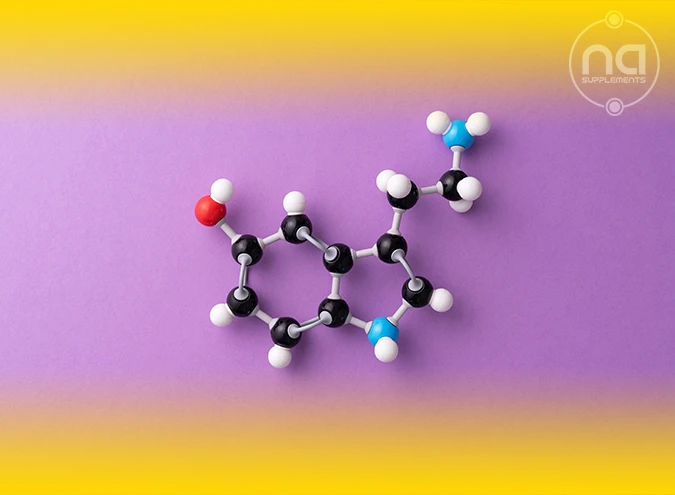
Furthermore, quercetin also enhances dopamine signaling. Dopamine is associated with motivation, reward, and pleasure. So, by supporting dopamine production or release… Quercetin may help combat the lack of motivation or “pleasure” that often accompanies depression.
2. Tauroside E and Its Role in Neurotransmission:
So, tauroside E is another bioactive compound found in Nigella sativa… And has been isolated and studied for its potential antidepressant effects. tauroside E is thought to have a role in modulating the balance of neurotransmitters. Like quercetin, it may have a stabilizing effect on serotonin and dopamine pathways. Enhancing the brain’s ability to regulate mood and emotions.
3. Increasing BDNF Levels:
So, Brain-Derived Neurotrophic Factor (BDNF) is a protein that plays a crucial role in the growth. Maintenance. And plasticity of neurons in your brain. Furthermore, it is essential for maintaining your cognitive function. And emotional regulation. So, low levels of BDNF are commonly associated with depression. As well as other mood disorders. In fact, some studies have shown that compounds in Nigella sativa. Such as thymoquinone (a major active compound), can increase BDNF levels. This can improve brain function. And help restore neuronal health. Which may alleviate symptoms of depression.
Moreover, by increasing BDNF… Black seed oil may help repair or strengthen neural circuits that regulate mood. Thus, potentially reversing some of the brain changes caused by chronic stress and depression. Essentially, higher BDNF levels support better neuronal communication. Which is vital for healthy brain function. And emotional balance.
Dosage for Depression: Similar to anxiety… A typical dosage for alleviating depressive symptoms is 1–2 teaspoons per day. Again, it’s important to consult a healthcare provider before using black seed oil as a supplement for depression.
#3. Boosting Memory and Cognitive Function with Black Seed Oil

The Importance of Cognitive Function
Memory and cognitive function are crucial for everyday tasks. For individuals in the USA, UK, Canada, and Australia, maintaining mental clarity is vital, whether at work, studying, or during leisure activities. However, as we age, cognitive decline becomes a significant concern. Alzheimer’s disease and dementia, which affect millions of elderly individuals globally… Are conditions that can be delayed. Or mitigated through the use of neuroprotective substances. So, does black seed oil have this neuroprotective mental benefit, or not?
Black Seed Oil’s Impact on Memory
Firstly, in a fairly recent study (Sayeed M. S. B. et. al., 2013)… Researchers investigated the effects of Nigella sativa (black seed) oil on memory, attention, and cognitive function in healthy elderly volunteers. So, over a nine-week period, one group of participants took 500mg of Nigella sativa oil twice daily. While another group received a placebo. The results showed that black seed oil contributed significant improvements in various cognitive tasks. Including memory recall. Attention. And problem-solving skills. As measured by several neuropsychological tests. Importantly, no adverse effects on heart. Liver. Or kidney function was observed. Thus, suggesting that Nigella sativa (black seed) oil is safe for use.

Furthermore, researchers of another academic paper concluded:
“It appears that enough data has been accumulated to support NS [(Nigella sativa aka Black Seed)] as a potential candidate for a drug discovery programme against neurodegeneration related diseases and brain injury affecting learning and memory.”
Mechanisms Behind Memory Improvement
So, in regard to the exact mechanisms of function… Whereby black seed oil positively enhances memory & cognition… Then here is an excerpt from some academics specializing in this research:
Dosage for Cognitive Enhancement: To enhance memory and cognitive function, the typical recommended dosage is 1–2 teaspoons per day, though some studies suggest that higher doses may be effective. But of course, referring to your professional medical practitioner is a must. Especially, in the case you have specific health issues. And/or are undergoing specific medication courses.
#4. Black Seed Oil Mental Benefits: Alleviating Insomnia & Promoting Sleep Quality

Insomnia and Mental Health
So, sleep disorders… Particularly insomnia, are widespread in countries like the USA, Canada, and Australia. In fact, poor sleep can negatively affect mental health. Thus, leading to issues such as anxiety. Depression. As well as cognitive dysfunction. So, a good night’s sleep is essential for brain health and overall well-being.
Black Seed Oil’s Effects on Sleep
So, academic research has demonstrated that black seed oil improves sleep quality. And reduces symptoms of insomnia. In 2022, researchers examined the effects of Nigella sativa (black seed) oil on alleviating insomnia and improving sleep quality in adults aged 35–65 who experienced stress. Anxiety. And sleep disturbances. So, the participants took thymoquinone (TQ) rich black seed oil, for a 9-week period. And showed improvements in sleep patterns. With reductions in nighttime awakenings. And difficulty falling asleep. The oil’s active compounds, such as TQ… Are thought to work by influencing neurotransmitters like GABA. Which play a key role in promoting relaxation and sleep. The study suggests that Nigella sativa oil can be an effective natural remedy for sleep disorders. With no significant side effects noted.
Mechanisms of Action
Firstly, sleep-promoting and insomnia-alleviating effects of Nigella sativa (black seed) oil are mainly attributed to its bioactive compounds. Particularly thymoquinone (TQ). secondly, the actual mechanisms through which black seed oil influences sleep and alleviates insomnia involve several key processes:
1. Influencing GABA (Gamma-Aminobutyric Acid) Activity:
- GABA is a neurotransmitter that plays a crucial role in calming the brain. And promoting relaxation. Which is essential for sleep initiation and maintenance.
- Thymoquinone (TQ)… The active compound in Nigella sativa (black seed) oil, has been shown to modulate GABA levels in the brain. So, by enhancing GABAergic activity… TQ helps to reduce brain activity and induce relaxation. Which promotes sleep and alleviates insomnia.
- In fact, this mechanism is similar to how some sleep medications work. As they often target GABA receptors to help the brain slow down and prepare for sleep.

2. Regulation of Neurotransmitters Involved in Sleep-Wake Cycle:
- Black seed oil, particularly its TQ content, also affects other neurotransmitters. Such as acetylcholine, glutamate, and nitric oxide (NO). Which are involved in regulating the sleep-wake cycle:
- Acetylcholine: Helps in regulating REM (Rapid Eye Movement) sleep. And has a calming effect. Thus, contributing to restful sleep.
- Glutamate: The most abundant excitatory neurotransmitter. TQ may help balance glutamate’s effects by preventing excessive excitation in the brain. Which can interfere with sleep.
- Nitric oxide (NO): NO is involved in the relaxation of blood vessels. And has a role in the regulation of sleep. TQ may help balance NO levels. Therefore, promoting a restful sleep state.
- Acetylcholine: Helps in regulating REM (Rapid Eye Movement) sleep. And has a calming effect. Thus, contributing to restful sleep.
3. Impact on Stress and Anxiety:
- Anxiety and stress are common contributors to insomnia. And TQ has been shown to possess anti-anxiety and stress-reducing properties. So, by reducing anxiety… TQ helps lower cortisol levels (the stress hormone). Allowing the body to relax and prepare for sleep.
- Lowering stress and anxiety helps the body shift from a “fight or flight” mode. Into a “rest and digest” state. Which is ideal for sleep.

4. Melatonin Modulation:
- Melatonin, the hormone responsible for regulating the sleep-wake cycle, plays a significant role in sleep induction. While the exact relationship between TQ and melatonin is not fully understood… There is evidence to suggest that Nigella sativa oil may have a modulatory effect on melatonin levels. Thus, contributing to better sleep quality.
5. Anti-inflammatory Effects:
- Inflammation can contribute to sleep disturbances. And chronic inflammation is often linked to insomnia. TQ in black seed oil has anti-inflammatory properties. Which may help reduce inflammation in the brain and nervous system. Leading to better sleep quality.
Dosage for Insomnia: For regular adults aiming to alleviate insomnia, the dosage used in the study was 500 mg of Nigella sativa oil twice daily.
Conclusion
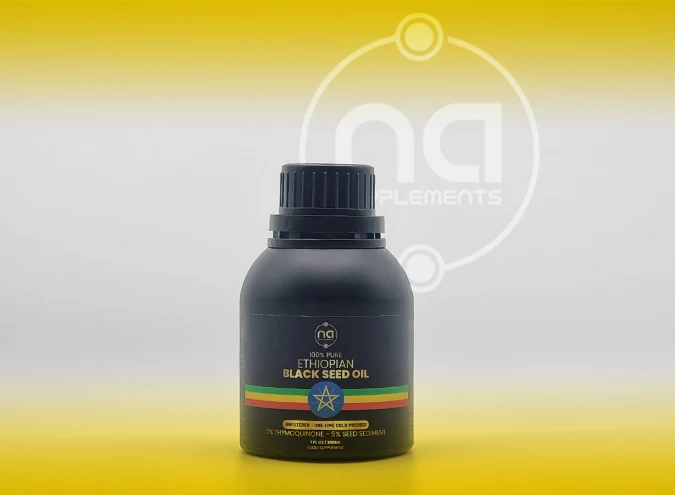
In conclusion, the mental benefits of black seed oil, derived from the Nigella sativa plant, are nothing short of remarkable. With a history of use in traditional medicine… This oil continues to gain attention for its modern applications in improving mental health. Scientific studies highlight the impressive effects of black seed oil in alleviating anxiety. Depression. And even insomnia. Primarily through its active compound, thymoquinone (TQ).
So, by boosting neurotransmitters like GABA and serotonin. Thymoquinone (TQ) helps calm the mind. Reduce your stress. And enhance your mood. Additionally, black seed oil’s potential to improve cognitive function and support better sleep quality makes it a valuable ally. especially, if you’re dealing with mental fatigue. Stress. And/or sleep disturbances. So, whether you’re an athlete. A busy professional. Or simply seeking to improve your mental well-being… Black seed oil offers a natural, scientifically-backed remedy. With its array of therapeutic benefits, it’s clear that black seed oil, with its ability to nurture both the mind and body, deserves a place in modern wellness regimens.
Black seed oil, a treasure untold,
Its benefits for the brain, bold.
For anxiety, depression, and memory too,
This oil can help bring clarity through.
From stress to sleep, its effects so wide,
In mental health, it’s a trusted guide.
For focus, calm, and brain’s defense,
Black seed oil offers much recompense.
So let this ancient remedy shine,
In the world of wellness, it’s truly sublime.
Thanks for reading our article on black seed oil mental benefits. Hope you’ve benefitted!


2 responses
I am extremely inspired with your writing skills.
There’s a kind of quiet beauty in your words — they don’t shout for attention, but they capture it nonetheless.